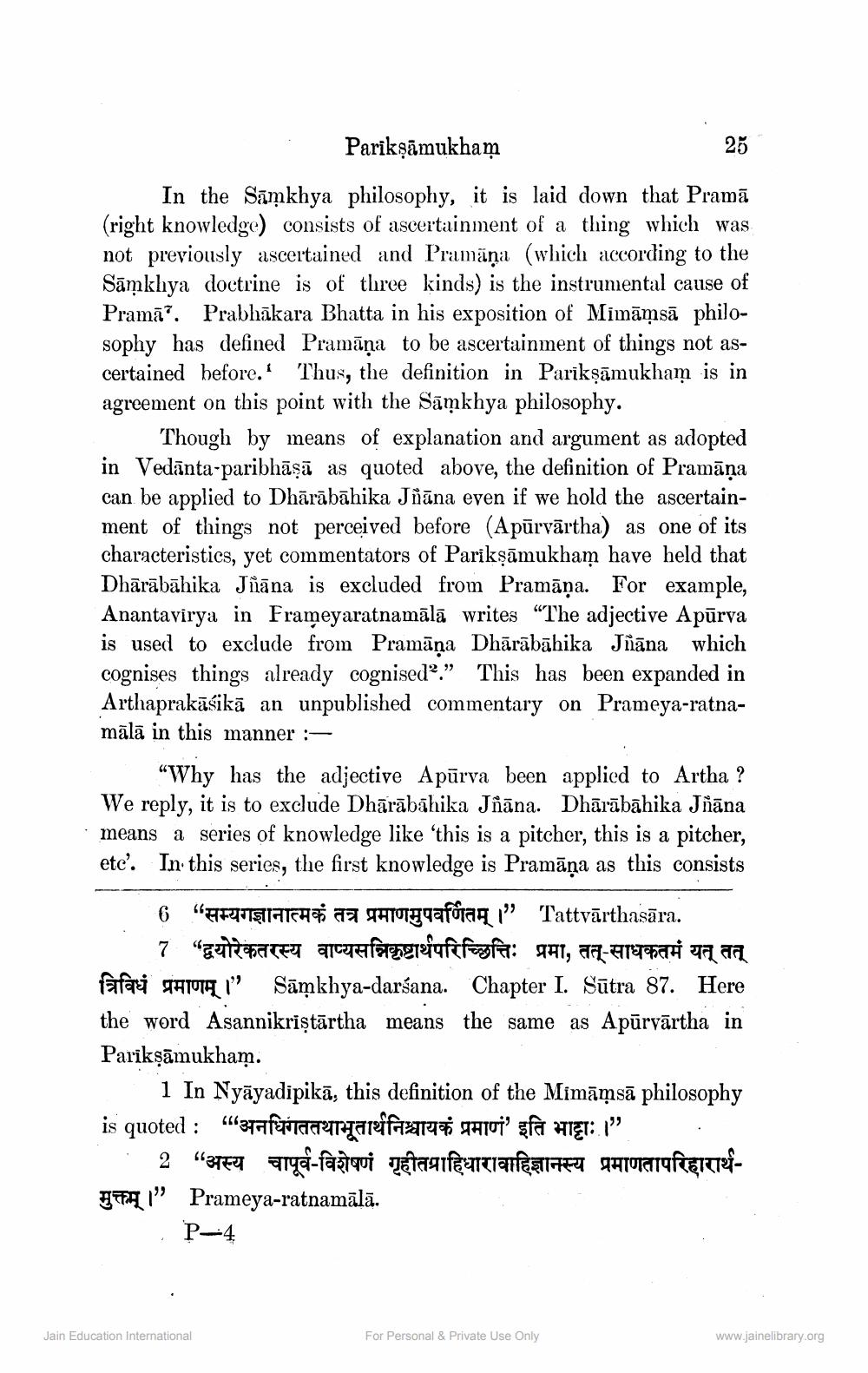________________
25
Parikşāmukham In the Samkhya philosophy, it is laid down that Pramā (right knowledge) consists of ascertainment of a thing which was not previously ascertained and Pramāņa (which according to the Samkhya doctrine is of three kinds) is the instrumental cause of Pramā?. Prabhākara Bhatta in his exposition of Mimāṁsā philosophy has defined Pramāņa to be ascertainment of things not ascertained before. Thus, the definition in Parikṣāmukham is in agreement on this point with the Sāmkhya philosophy.
Though by means of explanation and argument as adopted in Vedānta-paribhāṣā as quoted above, the definition of Pramāņa can be applied to Dhārābāhika Jñāna even if we hold the ascertainment of things not perceived before (Apūrvārtha) as one of its characteristics, yet commentators of Parikṣāmukham have held that Dhārābāhika Jūāna is excluded from Pramāņa. For example, Anantavirya in Frameyaratnamālā writes “The adjective Apūrva is used to exclude from Pramāna Dhārābāhika Jūāna which cognises things already cognised?” This has been expanded in Arthaprakāśikā an unpublished commentary on Prameya-ratnamālā in this manner :
“Why has the adjective Apūrva been applied to Artha ? We reply, it is to exclude Dhārābāhika Jñāna. Dhārābāhika Jñāna means a series of knowledge like 'this is a pitcher, this is a pitcher, etc. In this series, the first knowledge is Pramāņa as this consists
6 "ARTIŞATCH AT TATTICafdag 1" Tattvārthasāra.
7 "द्वयोरेकतरस्य वाप्यसन्निकृष्टार्थपरिच्छित्तिः प्रमा, तत्-साधकतमं यत् तत् Safari A1014 I” Sāņkhya-darśana. Chapter I. Sūtra 87. Here the word Asannikriştārtha means the same as Apārvārtha in Parikṣāmukham.
1 In Nyāyadipikā, this definition of the Mimāṁsā philosophy is quoted : 537APEPOTATAT Larifa:24* TATUT' fè HIET: 1" .
2 "अस्य चापूर्व-विशेषणं गृहीतग्राहिधारावाहिज्ञानस्य प्रमाणतापरिहारार्थITALI" Prameya-ratnamālā.
. P-4
Jain Education International
For Personal & Private Use Only
www.jainelibrary.org




